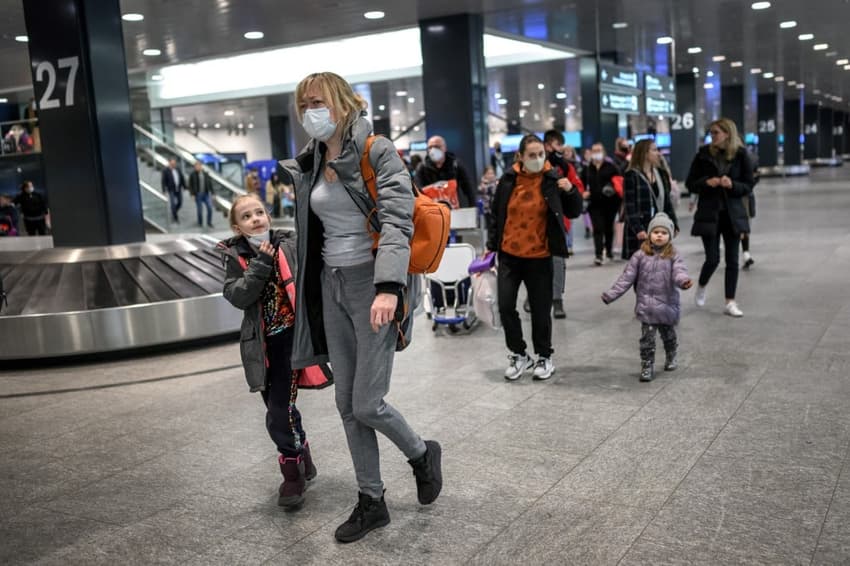Switzerland mulls ending special visa for Ukrainian refugees

Ukrainians who fled to Switzerland after Russia invaded their country in February 2022 received the temporary ‘S permit’ visa. Now its future is in question.
Enforced on March 12th, 2022, just days after the first wave of Ukrainians started to arrive in Switzerland, the special S permit aimed to “to grant protection to people who have fled Ukraine as quickly and as unbureaucratically as possible,” the Federal Council said in a press release on Friday.
This permit allowed Ukrainians to work in Switzerland, in addition to other benefits they received from the government, including free health care, language courses, and housing allowances.
READ ALSO: Switzerland's special 'S permit' visa program
However, “S status was never designed to allow a long-term stay in Switzerland,” the government said. “It only guarantees protection as long as the beneficiaries are exposed to serious general danger” in their own country.
Even though the Federal Council conceded it is “impossible to predict when the war in Ukraine will end and when refugees will be able to return to their country without risk,” the Federal Department of Justice and Police had instructed the State Secretariat for Migration (SEM) to “anticipate and determine, with the cantons, under what legal, organisational and procedural terms a lifting of S status could be considered.”
As a result, SEM, the federal agency responsible for over 70,000 people from Ukraine presently in the country, has developed a provisional plan for lifting of the S status.
In addition to operational measures, the plan includes recommendations on departure deadlines, exemptions, and modalities of financial assistance for those returning to Ukraine.
The exact date when this measure might be implemented is not yet known, but the Federal Council said it would honour its decision made in November 2022 not to scrap the S status until March 2024, and only if the situation in Ukraine “stabilises sustainably.”
Comments
See Also
Enforced on March 12th, 2022, just days after the first wave of Ukrainians started to arrive in Switzerland, the special S permit aimed to “to grant protection to people who have fled Ukraine as quickly and as unbureaucratically as possible,” the Federal Council said in a press release on Friday.
This permit allowed Ukrainians to work in Switzerland, in addition to other benefits they received from the government, including free health care, language courses, and housing allowances.
READ ALSO: Switzerland's special 'S permit' visa program
However, “S status was never designed to allow a long-term stay in Switzerland,” the government said. “It only guarantees protection as long as the beneficiaries are exposed to serious general danger” in their own country.
Even though the Federal Council conceded it is “impossible to predict when the war in Ukraine will end and when refugees will be able to return to their country without risk,” the Federal Department of Justice and Police had instructed the State Secretariat for Migration (SEM) to “anticipate and determine, with the cantons, under what legal, organisational and procedural terms a lifting of S status could be considered.”
As a result, SEM, the federal agency responsible for over 70,000 people from Ukraine presently in the country, has developed a provisional plan for lifting of the S status.
In addition to operational measures, the plan includes recommendations on departure deadlines, exemptions, and modalities of financial assistance for those returning to Ukraine.
The exact date when this measure might be implemented is not yet known, but the Federal Council said it would honour its decision made in November 2022 not to scrap the S status until March 2024, and only if the situation in Ukraine “stabilises sustainably.”
Join the conversation in our comments section below. Share your own views and experience and if you have a question or suggestion for our journalists then email us at [email protected].
Please keep comments civil, constructive and on topic – and make sure to read our terms of use before getting involved.
Please log in here to leave a comment.